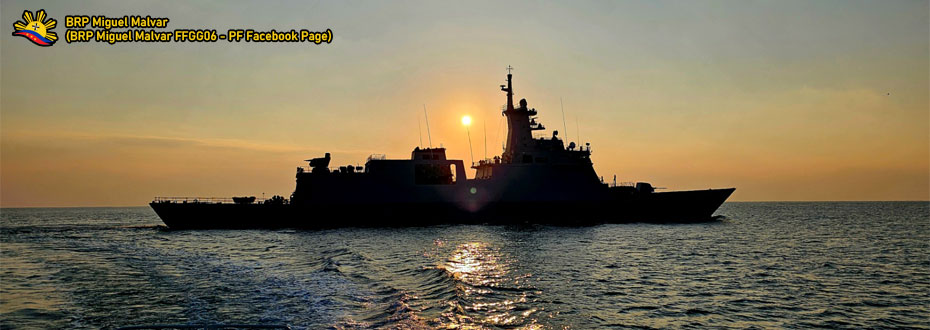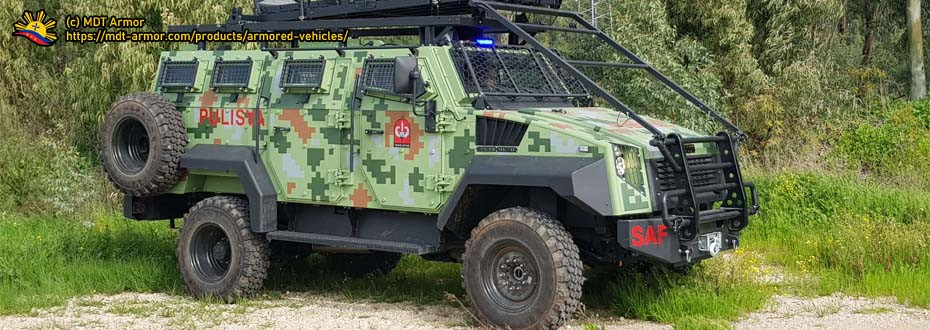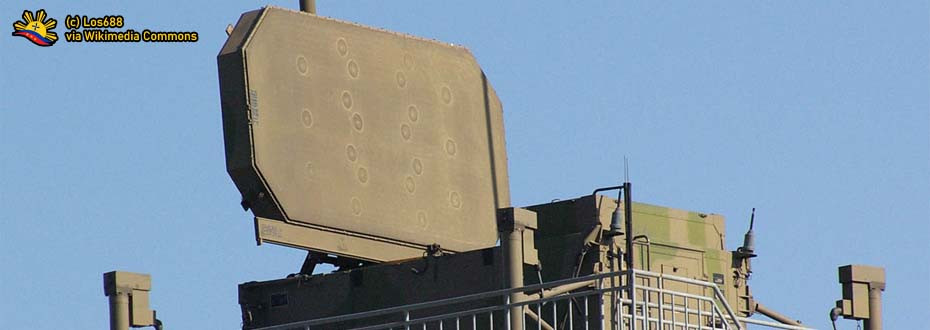With that acquisition comes with the endless possibilities of purchasing more ships of such class in its inventory as additional acquisitions do come with economic advantages that are helpful for the Philippine Navy continuously sustain the operations, repairs, and maintenance of these ships as it bolsters up the numbers required in patrolling the country's vast archipelagic, territorial and extra-territorial waters.
DISCUSSION OVERVIEW
 |
| The Pohang-class Corvette BRP Conrado Yap (PS-39). Obtained from the Philippine Navy via Wikimedia Commons. |
Among the military assets that have procured from South Korea is the former ROKS Chungju (PCC-762) which is now named within the Philippine Navy fleet as the BRP Conrado Yap (PS-39) which is currently considered as the most capable warship that the Navy obtains to date - until the arrival of the Jose Rizal-class Frigates by next year.
Currently, obtaining such a vessel is a welcoming addition for the fleet's capabilities as it comes with fitted weaponry that doubles that to the existing vessels that the Navy obtains as well as having torpedoes and sensors that are meant for antisubmarine operations as it goes integral for the country's patrol and defense of the waters that surround the country which composes of an archipelago.
While obtaining one capable vessel is an improvement for the fleet's overall capability, simply retaining to such number goes insufficient as the country's vast waters to patrol and defend is something that is not sufficing to the fleet's current composition of ships, not to mention that obtaining a fleet of ships of similar built and class is something that benefits the logistical chain of supplies on spare parts in the long run.
Other than that, there is also the benefit of compatibility especially with regards to the procurement of additional ships of a similar class in the long run as the skillsets between the crew and maintenance teams in terms of maintenance, repair, and overhaul (MRO) operations are shared along as this streamlines any training that involves the performance and roles that these ships play within the Philippine Navy.
To take note, the South Koreans still obtains a handful of Pohang-class Corvettes on its fleet that is now pending replacement which means a lot of opportunities for the Philippine Navy to obtain two or more vessels which may equate the overall number of such warships within the naval inventory which may satisfy the necessities that may vary within the fleet as well as the certain numerical rule of ship operations that will be explained later throughout this article.
This discussion talks about the possibility for the fleet in having more Pohang-class Corvettes in the Philippine Navy as the inputs provided will give us an insight into the prospective composition of the fleet that correlates the capabilities it obtains and also to the respect of its existing vessels that it currently obtains in which several of it was old and needs replacement.
THE BRP CONRADO YAP AND THE PHILIPPINE FLEET PLUS SOME POHANG-RELATED INFORMATION
 |
| The BRP Conrado Yap (PS-39) sets the precedent on the idea of acquiring more Pohang-class Corvettes for the Philippine Navy. Obtained via Inquirer.net website. |
https://pitzdefanalysis.blogspot.com/2019/08/the-pohang-class-brp-conrado-yap-ps-39.html
Recalling the contents of the article, let it be known once again that the Philippine Navy's Pohang-class Corvette was delivered in the country way back August of 2019 in which this is considered one of the latest vessels that were added in the fleet alongside the more-recent Multipurpose Attack Craft Mk. 4s which came in three units that were commissioned into service alongside four more Amphibious Assault Vessels for the Philippine Marine Corps.
Like any other Flight III Pohang-class Corvettes, the ex-ROKS Chungju (PCC-762) came up with two units 76mm Oto Melara Guns, two units 40mm OtoBreda Twin Guns, two units Mark 32 Triple Torpedo tubes intended for munitions like the South Korean-made K-745 Blue Shark Torpedoes, Signaal (Thales) PHS-32 Hull Mounted Sonar, and Signaal (Thales) WM-28 Fire Control System.
Before the ex-ROKS Chungju was considered by the Philippine Navy to be the BRP Conrado Yap, another Pohang-class Corvette was considered and assessed wherein such ship that was checked upon was the decommissioned ROKS Mokpo (PCC-759) which belonged to the Flight II Pohang-class Corvettes with a minimal difference on the weapons fit as compared to the Flight III variants that were received by various countries which will be discussed through this article.
Speaking of Flight II variant of the Pohang-class Corvettes, let it be known that there is also one recipient country that has also received such military assets, in which it came along with the rejected offers like in the case of the Philippines for the ROKS Mokpo, rendering the number of ships on this variant available for sale at two units - PCC-757 (the ROKS Gunsan) and PCC-759 (the ROKS Mokpo).
Some additional information about the South Korean offer of the PCC-757 ROKS Gunsan to the Colombian Navy, it was apparently rejected in favor of the earlier Donghae-class Corvette ex-ROKS Anyang (PCC-755), in which it was renamed to ARC Narino (CM-55) and is considered a sole Corvette in service within the Colombian Naval fleet - rendering and affirming that like the ROKS Mokpo, the ROKS Gunsan was also rejected by the Colombians which render the possible availability of the ships.
Back to the topic of the BRP Conrado Yap's role and composition in the Philippine Navy, it is worth notable that with the arrival of the Jose Rizal-class Frigates by the year 2020, it is currently the most capable warship to date as it comes with weapons fit that comes with more firepower as well as the aforementioned torpedo launchers that even the Del Pilar-class Offshore Patrol Vessels still didn't obtain at present although such vessel has room to improve its capabilities as it is now in the process of getting an upgrade.
With its capability, it gives a precedent for an idea of an additional unit or more Pohang-class Corvettes that will surely give the Philippine Navy more tools it needs to uphold its duties and responsibilities in maritime defense as more waters will be covered by vessels that come with better firepower as compared with other vessels in the fleet.
PROSPECTIVE USERS OF POHANG-CLASS CORVETTES Aside from South Korea itself
 |
| The Vietnamese Navy also obtains Pohang-class Corvettes, coming at two units. Image obtained from VietDefense via APDJ. |
Among these countries including the Philippines, it is the Vietnamese Navy who received more ships than South Korea as they obtain two of such class, and there comes a possibility on their end as well as on other prospective users to add more of such class in their fleet given that the rationale of such purchase goes with the idea of a lesser burden on logistics of spare parts especially if it goes by bulk as well as more units of a similar platform for respective navies to familiarize on.
Including the Colombian offer, the number of ships that have transferred to foreign navies from South Korea as of this entry comes with six units wherein it is in operation by at least six countries including the country of origin, with all ships under the Flight III variant of the Pohang-class Corvettes transferred to these said users.
Pulling this number out, it is worth to consider that South Korea is still the largest user of such type of Corvettes wherein they obtain the more modern Flight of the Pohang-class which is the Flights IV and V variants, of which they may later go on up for grabs for any prospective country like the Philippines itself.
Speaking of these Flights of ships, it will be worthy to be discussed in depth its improvements over the Flight III variant which includes the BRP Conrado Yap that currently is in operation with the Philippine Navy given that there goes the variation regarding the subcomponents and weapons fit that these respective vessels obtain wherein it goes with their respective roles as either anti-surface (ASUW), anti-submarine (ASW) or anti-air (AAW) components.
Hence, the on-going modernization efforts within the South Korea Navy as these ships are to be replaced by larger Incheon-class Frigates and eventually the Daegu-class Frigates, of which the Jose Rizal-class Frigates that the Philippine Navy obtains is considered as a subclass of these newest additions within the South Korean Fleet may render the remaining Pohang-class Corvettes open for grabs in which it is considered an opportunity for the Philippine fleet to get more ships that augment the BRP Conrado Yap in filling up the ship of its class.
THE REMAINING FLIGHT OF SHIPS THAT EVENTUALLY ARE UP FOR GRABS Once decommissioned in service
 |
| A Flight IV Pohang-class Corvette. Image Source. |
Completing the number of total units of active Republic of Korean Navy Pohang-class Corvettes to 13 current serviceable assets is the Flight V variant which comes with six units active that composed with these ships: ROKS Sokcho PCC-778, ROKS Yeongju PCC-779, ROKS Namwon PCC-781, ROKS Gwangmyeong PCC-782, ROKS Sinseong PCC-783, and ROKS Gongju PCC-785 which is considered the last ship of the class that was built for the South Korean fleet use.
Take note that the ships that were decommissioned from any of these mentioned Flights are the ROKS Jinhae PCC-766, and ROKS Iksan PCC-768 wherein both of these vessels belonged to the Flight IV variant of the Pohang-class fleet, with the ROKS Cheonan PCC-772 (still a Flight IV variant Pohang vessel) being the one who fell victim to a North Korean Submarine.
Given the number of Pohang-class vessels that are still in service in the South Korean Navy, there goes the opportunity for the Philippine to grab more, especially in obtaining two more vessels to satisfy the rule of three needed for its operations wherein not to mention that its subcomponents are something that the country may obtain along serve as an enhancement over what the BRP Conrado Yap may currently provide within the fleet.
Moreover, it is nice to take note that these later Flight variants of the Pohang-class Corvettes are younger as opposed to the BRP Conrado Yap itself in which its service life may still be utilized more shall it be integrated into the Philippine Navy fleet composition with other factors involving excellent upkeep ranging from maintenance, repair, and operations.
These later versions are known to be built between 1988 and 1993 which is considered younger than both the Del Pilar-class Frigates and the Emilio Jacinto-class Patrol Corvettes are in terms of its age in correlation to the dates the hulls were made in which this will be something for the fleet composition that still operates World War 2 era vessels at the current date.
It will be nice to see on the developments which involve any of the ships from these flight variants of the Pohang-class Corvettes which in any way increases the number of capable vessels that the fleet needs amidst its current Modernization efforts as it keeps on building up its inventory of tools, resources, and manpower to get the job done.
"AS SWEETENERS" OF THE UPCOMING CORVETTE ACQUISITION PROJECT
 |
| BRP Jose Rizal on a sea trial. The Corvettes will be an improved iteration of this warship. (c) Philippine Navy. |
Since the shipbuilder is the Hyundai Heavy Industries or HHI, it comes as a factual thing that they will have these corvette designs derived from the Jose Rizal-class Frigates, only with more weapons subcomponents fitted onboard the system as well as having several Fitted For But Not With subcomponents included as well, wherein such feature is still not available onboard the Jose Rizal-class vessels.
It is with this project that an idea on sweeteners came along as the Department of National Defense sees the Corvette Acquisition Project as an opportunity to have additional Pohang-class Corvettes included in the deal as it will augment the capabilities of the BRP Conrado Yap which equates to the number of operating ships of that class up to three.
It is worth taking note that the rule of three applies in the operations of the Philippine Navy as they see the idea of having a single squadron of three ships that are doing their mandated duties and responsibilities of protecting the country's maritime domain and national interest as these ships obtain the capabilities needed in terms of increased firepower and antisubmarine detection which are not available on the older vessels that the fleet obtains.
To take some example on this rule of three, let it be known that ships like the Jacinto-class Patrol Corvettes/Offshore Patrol Vessels as well as the Del Pilar-class Offshore Patrol Vessels consist of three vessels that are forming these classes of ships wherein these are considered as a single naval squadron of its own right.
From here, one may give an idea about the essentials of having additional Pohang-class Corvettes in the future wherein having these vessels serve as a force multiplier wherein a collective of vessels in the fleet will help provide that maritime security as needed for the county's national defense.
It remains to be seen now regarding the implementation or the materialization of this proposal, although it comes with the potential that goes with the hopes, dreams, and aspirations that this project for additional assets to push through as it means a lot for the fleet's necessity of such platforms for its combat duty which is intended to patrol the country's vast coastline and maritime domain.
WHAT REMAINS TO BE SEEN
 |
| Differences depicted between different flights of the Pohang-class Corvettes. Image Source. |
It is worth taking note that other nations operate such type of ships and other potential customers are interested in getting these remaining Pohang-class Corvettes up for grabs, in a way that there is some sense of competition for the Philippine Navy to have in getting more ships needed to augment the ones existing on its fleet.
Currently, the BRP Conrado Yap PS-39 is seen as the most sophisticated ship within the Philippine Navy to date given its weapons fit aforementioned wherein it will be multiplied further on the idea of additional Pohang-class Corvettes in the fleet wherein there will be more ships on patrol that is also capable to hunt submarines.
South Korea still obtains Flight IV and V variants of the Pohang-class which are still up for grabs, wherein it has a variation on its weapons fit which may provide the Philippine Navy additional capability that it needs like anti-ship missiles that may help induce harm against other warships that are posing the threat against the country's national security.
The plan comes as the Defense Department is seeking it as some sort of a freebie from the construction of two new corvettes which is still considered as another variant of the Jose Rizal-class Frigates wherein they are expected to add more firepower that the fleet needs wherein these ships are seen as an improvement over the existing ships that the fleet obtains, with the percentage being old World War 2 vessels.
Shall these things push through, it will be an interesting thing to see for the fleet component of the Philippine Navy as they are kept on improving their capabilities which in itself is commendable given the number of assets they are aspiring to have ranged from the Frigates which will be delivered next year down to the planned Corvettes and FAIC-M.
These things are several of the projects that push the Armed Forces of the Philippines into an organization in which it obtains the capabilities that are in line with its Modernization Efforts specified in the Revised AFP Modernization Program thru the R.A. 10349, as it goes to provide that needed minimum credible defense posture that the country needs in defending its territorial integrity and national interest from both internal and external threats.















.png)



